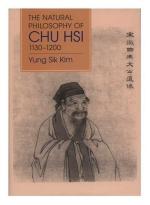|
This section contains 8,050 words (approx. 27 pages at 300 words per page) |

|
SOURCE: “The Great Synthesis in Chu Hsi,” in A Sourcebook in Chinese Philosophy, translated and compiled by Wing-tsit Chan, Princeton University Press, 1963, pp. 588-604.
In the essay below, Chan discusses Chu Hsi's contribution to Neo-Confucianism, arguing that Chu Hsi eliminated the remnants of Buddhist and Taoist traditions in Neo-Confucianism, as well as refined and synthesized the six major concepts advocated by various Neo-Confucian philosophers. Chan also introduces several brief essays by Chu Hsi, included here.
No one has exercised greater influence on Chinese thought than Chu Hsi (Chu Yüan-hui, 1130-1200), except Confucius, Mencius, Lao Tzu, and Chuang Tzu. He gave Confucianism new meaning and for centuries dominated not only Chinese thought but the thought of Korea and Japan as well.
Our philosopher early distinguished himself as a patriot-scholar, having repeatedly petitioned the emperor to practice the Confucian principles of “the investigation of things” and “the extension of...
|
This section contains 8,050 words (approx. 27 pages at 300 words per page) |

|


